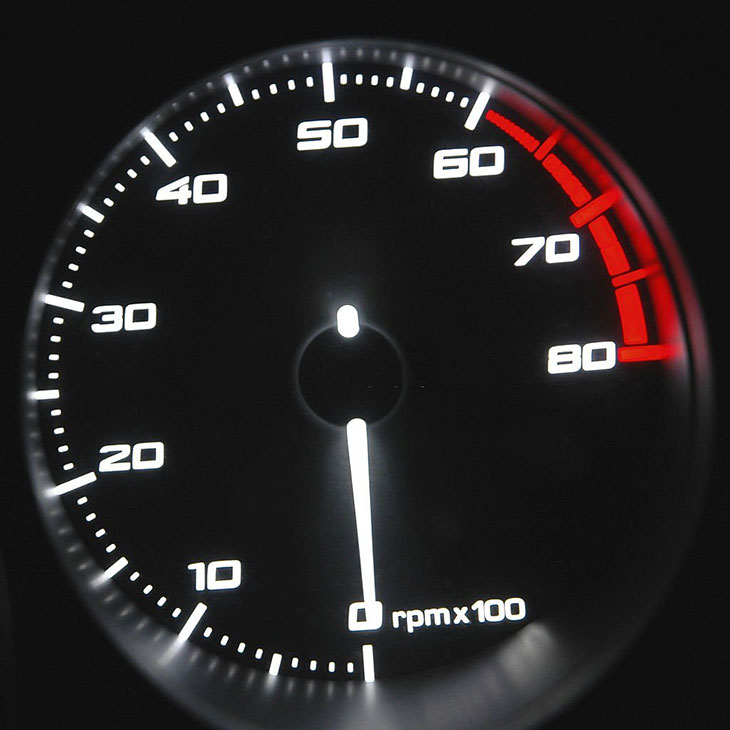Why Do My RPMs Jump While Driving? A Troubleshooting Guide
Experiencing erratic RPM fluctuations while driving can be unsettling. That sudden jump in your engine's revolutions per minute (RPMs) isn't just annoying; it can signal underlying problems requiring immediate attention. This comprehensive guide will explore the common causes of RPM jumping, helping you diagnose and potentially fix the issue yourself, or at least understand what to tell your mechanic.
Understanding RPMs and Their Importance
Before diving into troubleshooting, let's quickly grasp the significance of RPMs. Your car's RPM gauge indicates the speed at which your engine's crankshaft is rotating. Consistent RPMs are crucial for smooth driving and optimal engine performance. Erratic jumps, however, point to potential mechanical or electrical malfunctions.
Common Causes of Jumping RPMs
Several factors can cause your RPMs to jump unexpectedly while driving. Here are some of the most frequent culprits:
1. Faulty Mass Airflow Sensor (MAF Sensor): This sensor measures the amount of air entering your engine. A malfunctioning MAF sensor can provide inaccurate readings, leading to erratic fuel delivery and consequently, fluctuating RPMs. Symptoms often include poor fuel economy and a rough idle in addition to jumping RPMs.
2. Dirty or Faulty Throttle Position Sensor (TPS): The TPS monitors the throttle plate's position, communicating this information to the engine control unit (ECU). A dirty or faulty TPS can lead to inconsistent fuel delivery and jerky acceleration, manifested as jumping RPMs. Cleaning the TPS is a relatively simple DIY task, but replacement might be necessary if cleaning doesn't resolve the problem.
3. Vacuum Leaks: Leaks in the vacuum system can disrupt the engine's air-fuel mixture, resulting in RPM fluctuations. Identifying vacuum leaks often requires a visual inspection of all vacuum hoses and connections for cracks, breaks, or loose fittings. A hissing sound might accompany the leak.
4. Problems with the Ignition System: Issues like faulty spark plugs, ignition wires, or the distributor (in older vehicles) can cause misfires, leading to unstable engine operation and fluctuating RPMs. A sputtering engine or difficulty starting might accompany this problem.
5. Transmission Issues (Automatic Transmission): In automatic transmission vehicles, problems within the transmission itself can cause RPM fluctuations, especially during gear changes. This could indicate issues with the torque converter, transmission solenoids, or other internal components. This often requires professional diagnosis and repair.
6. Faulty PCV Valve: The Positive Crankcase Ventilation (PCV) valve regulates crankcase pressure. A clogged or faulty PCV valve can lead to excessive pressure buildup, affecting the engine's performance and causing RPM jumps.
7. Throttle Body Issues: A dirty or malfunctioning throttle body can restrict airflow, impacting the engine's performance and causing RPM fluctuations. Cleaning the throttle body can sometimes resolve this issue.
Diagnosing the Problem: Steps to Take
Before rushing to the mechanic, try these troubleshooting steps:
- Check Engine Light: A illuminated check engine light often indicates a problem that can be diagnosed using an OBD-II scanner. This will provide a diagnostic trouble code (DTC) that points to the specific issue.
- Visual Inspection: Carefully inspect all vacuum hoses, wires, and connections for any visible damage.
- Clean the MAF and TPS Sensors: Use a MAF sensor cleaner and follow the instructions carefully. Similarly, clean the TPS sensor if accessible.
- Listen for Unusual Noises: Pay attention to any unusual hissing sounds (vacuum leaks) or knocking noises (ignition problems).
When to Seek Professional Help
If you've tried basic troubleshooting and the RPM jumping persists, it's time to consult a qualified mechanic. Complex transmission problems, advanced electronic issues, or internal engine problems require specialized tools and expertise.
Preventing Future Issues
Regular maintenance is key to preventing RPM jumping and other engine problems:
- Regular Oil Changes: Use the recommended oil type and change intervals.
- Inspect and Replace Worn Parts: Regularly inspect your vehicle's components, especially those related to the ignition and fuel systems.
- Professional Inspections: Schedule regular maintenance inspections with your mechanic.
By understanding the common causes of jumping RPMs and following these troubleshooting steps, you can potentially resolve the issue or at least effectively communicate the problem to your mechanic, leading to a quicker and more efficient repair. Remember, safety is paramount. If you're unsure about any repair, seek professional help.

